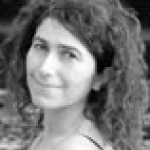Arts professionals are using survey software to traverse distances and harvest data to validate the work of art in our left-brain society. As a result, we are now able to make a few claims about what the arts provide, what the arts need, and what the arts can do next.
I am looking for answers and connections when I come to a conference, and this year I am heading into the Americans for the Arts Arts Education sessions with some very specific questions based on a bundle of surveys that have been completed this past year about teaching artistry.
A comprehensive table of these surveys will be shared in the next few days, so we will circulate it after the conference. But, a sneak preview of the questions that are bubbling up is offered here. I reference ideas from Judith Tannenbaum in 2007 when she left the Anericans for the Arts conference and wrote "What Have We Got to Lose? Preserving the Important Qualities of the Teaching Artist Profession, While Still Moving Ahead with Its Professionalism."
How will we preserve vision and cultural democracy as we urge leaders to centralize and institute regular support for our work? The surveys do share a vision for pooling resources and distributing power.
What will we do to prevent social justice from fading into service for the underprivileged? Many artists are being employed to tackle No Child Left Behind mandates instead of addressing causes and issues that generated the justification for NCLB.
Who will champion community arts work that is done in places other than formal institutions? Most of the surveys have a significant participation from organization administration.
What will happen to individual values and style? The surveys that address individuality require long narrative responses, and are more time-consuming to analyze.
How will we preserve the kind of learning that can only happen through trial and error? Most surveys reveal an abundance of methods embracing trial and error, yet a desire to move forward more effectively.
How will we be able to nurture and capture opportunities? Perhaps this conference will be one way.
Who will champion the understanding that teaching artists are artists? If this is a conference of arts-centered vision, we hope to find these answers in the outcomes.


